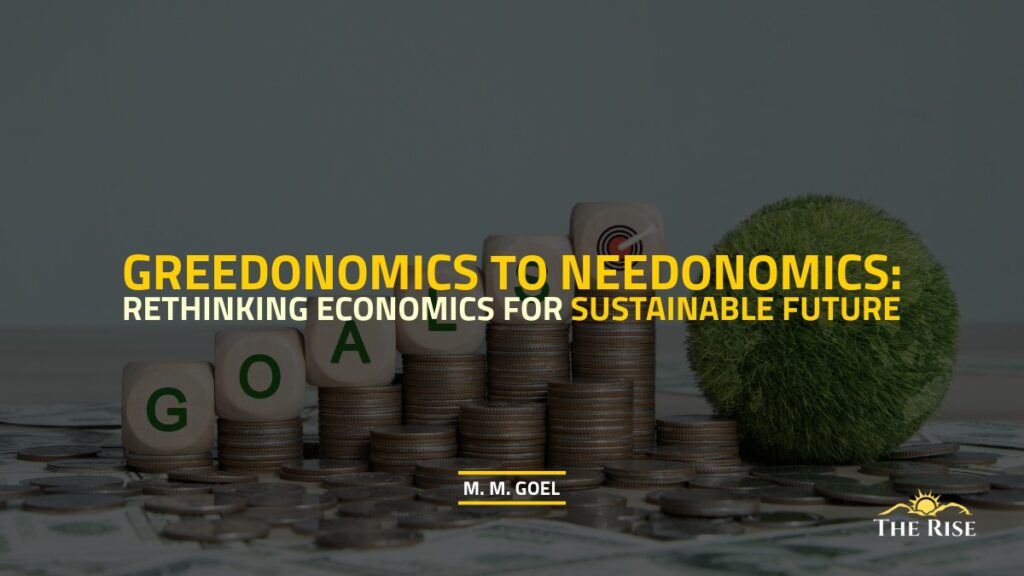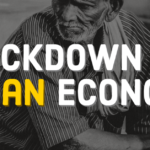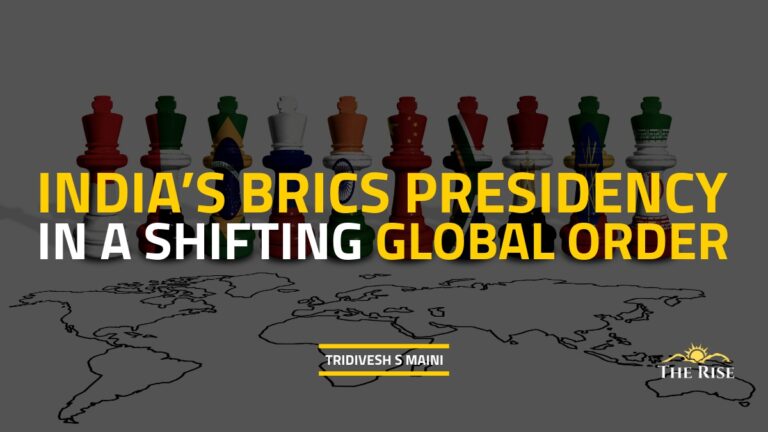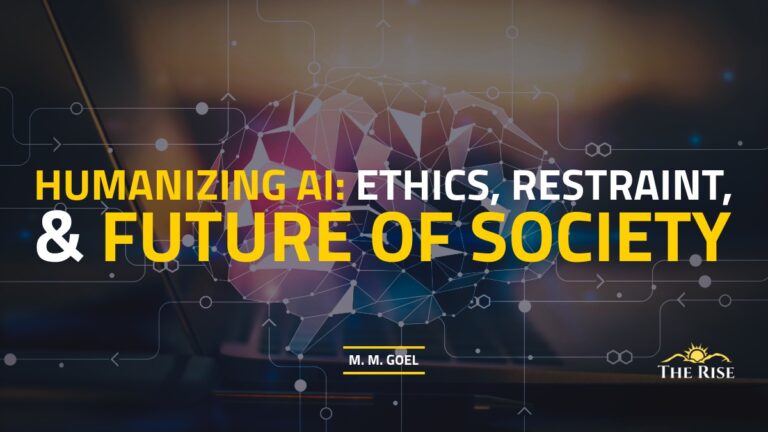Every society grapples with the tension between wants and needs, between accumulation and sufficiency, between competition and cooperation. Needonomics School of Thought offers an ethical compass to navigate these dilemmas.
The global community stands at a defining crossroads today. Despite unprecedented technological progress, the centralized state and globalized markets are failing to address the most pressing crises of our time — the escalating climate emergency, unaffordable food and housing, growing inequalities, and the erosion of democratic values.
The current systems, dominated by greed-based motives and institutional rigidity, have distanced themselves from the real needs of people and the planet. Against this backdrop, Needonomics School of Thought (NST) emerges as a human-centric alternative — one that calls for rethinking economics, ethics, and governance through the lens of needs rather than greed.
Rethinking Systems: From Centralization to Needonomics
The past century has witnessed an overdependence on centralized states and global markets. While both have contributed to growth and modernization, they have also deepened inequality, weakened community bonds, and eroded environmental balance. The centralized state tends to be bureaucratic and slow to respond to local realities, whereas global markets often prioritize profit over people, reducing human values to transactional metrics.
Also Read: Karambhumi & Needonomics: Transforming Work from Stress to Joy, Purpose, and Spiritual Growth
The Needonomics paradigm challenges this dichotomy. It calls for decentralizing economic and political power, enabling individuals and communities to act as need-based stakeholders -consumers, producers, distributors, and traders in the ecosystem. By doing so, NST offers a framework that empowers citizens to reclaim agency over their economic choices and social responsibilities.
Thinking like a Commoner: Foundation of Needonomics
At the heart of Needonomics lies the principle of “thinking like a commoner.” This does not imply ordinary thinking, but rather, collective thinking – an inclusive mindset rooted in empathy, fairness, and shared responsibility. In the Needonomics worldview, the commoner is not a passive recipient of state welfare or market products. Instead, they are an active stakeholder contributing meaningfully to the creation and distribution of resources.
Also Read: Reviving the Indian Coffee House Legacy: Towards Inclusive and Sustainable Cafeterias
Thinking like a commoner requires a shift from the “I-centric” to the “We-centric” approach. It involves recognizing that our well-being is interconnected — that the prosperity of one cannot exist at the expense of another. This social ethic calls for voluntary moderation, mindful consumption (needo-consumption), and ethical production (needo-production), creating harmony between individual needs and collective sustainability.
Case for a Needonomics Paradigm: Global Relevance
In an era of global interdependence, the Needonomics School of Thought presents a universal philosophy. Its principles transcend borders, ideologies, and systems. Every society grapples with the tension between wants and needs, between accumulation and sufficiency, between competition and cooperation. NST offers an ethical compass to navigate these dilemmas.
By focusing on need-based economics, NST addresses multiple crises simultaneously:
- Climate Change: Needonomics advocates mindful consumption and sustainable production. When individuals and communities prioritize what they need rather than what they want, natural resources are preserved, waste is minimized, and ecological balance is restored.
- Food and Housing Crises: The affordability crisis stems largely from speculative greed and overproduction for profit. NST redirects attention to necessities, encouraging local production, fair pricing, and equitable access to essentials.
- Decline of Democracy: True democracy thrives when citizens participate meaningfully, not merely vote periodically. Needonomics fosters democratic empowerment by enabling people to take charge of their economic and social realities, rather than relying solely on state interventions or market forces.
- Global Inequality: By redefining wealth as the fulfilment of genuine needs rather than endless accumulation, Needonomics offers a path toward distributive justice and human dignity.
Bypassing Institutional Dysfunction
The institutional frameworks that dominate modern life — whether state bureaucracies, corporate hierarchies, or global financial systems — are often too rigid, impersonal, and self-serving to meet local or individual needs effectively. They concentrate power in a few hands, leaving ordinary people disempowered and dependent.
Needonomics bypasses these dysfunctions by restoring autonomy at the community and individual levels. It envisions a bottom-up approach to development — one that is adaptive, participatory, and humane. Instead of waiting for top-down solutions, Needonomics encourages local innovation, ethical entrepreneurship, and voluntary cooperation.
Also Read: Childhood Obesity in Bharat: Needonomics for Nutrition Security and Healthy Demographic Dividend
For instance, a neighbourhood adopting the Needonomics model might prioritize community farming to meet local food needs, establish cooperative housing to ensure affordability, or develop micro-enterprises that balance profit with purpose. Such initiatives not only meet tangible needs but also cultivate trust, belonging, and social capital.
Democratic Empowerment through Shared Participation
The most profound appeal of the Needonomics School of Thought lies in its democratic empowerment of stakeholders. Every individual — as a consumer, producer, distributor, or trader — has a meaningful role to play. Unlike systems where decisions flow from the top, Needonomics is inherently participatory.
In this framework, there is no need for top-down administration or excessive bureaucracy. Instead, communities self-organize around shared needs and values. There is no obsession with private property or consumerism; rather, the focus is on collective stewardship and fair distribution. When everyone who contributes shares the bounty, the economy becomes a tool of empowerment rather than exploitation.
Also Read: Aging Gracefully with Needonomics: Habits of Head and Heart for a Meaningful Life
This model echoes the timeless wisdom of Indian civilization, where cooperation, moderation, and ethical duty (dharma) were integral to economic life. Needonomics modernizes these values for the 21st century, combining moral strength with economic rationality.
Belonging and Joy of Fair Participation
Beyond material satisfaction, Needonomics offers something deeper — the joy of belonging. In a world increasingly characterized by loneliness, competition, and alienation, Needonomics revives the spirit of community. Participants in a Needonomics-inspired economy do not chase excessive wealth but seek meaningful engagement, fairness, and fulfilment.
When people work together to meet genuine needs — food, housing, health, education, dignity — they experience shared satisfaction. This sense of participation creates social harmony and personal peace. Economic activity thus becomes not just a means of survival but a form of moral and spiritual growth.
Toward a Sustainable Future: Needonomics as a Way of Life
The Needonomics School of Thought is not merely an economic doctrine; it is a way of life. It calls for integrating ethics, empathy, and ecology into every decision — personal, institutional, and political. It emphasizes “Needo-ethics” in consumption, “Needo-sustainability” in production, and “Needo-leadership” in governance.
A Needonomics-based future envisions economies that:
- Measure progress through well-being, not wealth alone.
- Empower communities rather than corporations.
- Prioritize essentials over excesses.
- Foster cooperation instead of competition.
- Value moral capital alongside financial capital.
In this transformation, education plays a pivotal role. The youth must be taught not just how to make a living, but how to live meaningfully. Policy frameworks must move beyond GDP growth to incorporate the Economic Happiness Index (EHI) — a measure rooted in the fulfilment of needs and contentment.
Conclusion
The crises confronting humanity today are not merely economic or political — they are crises of consciousness. We have mistaken abundance for progress and competition for development. Needonomics invites us to rediscover balance — between self and society, economy and ecology, need and greed.
By thinking like a commoner and acting as responsible stakeholders, we can rebuild systems that serve humanity rather than enslave it. The Needonomics School of Thought offers not only a theory of economics but a philosophy of life — one that places human dignity, sustainability, and democratic empowerment at the centre of progress.
It is time to move from Greedonomics to Needonomics, from dependence to empowerment, and from isolated consumption to shared fulfilment. The choice before us is clear: to remain trapped in the dysfunctions of centralized and profit-driven systems, or to embrace a future grounded in the wisdom of needs — fair, sustainable, and human.
Disclaimer: The views expressed in this article are of the author solely. TheRise.co.in neither endorses nor is responsible for them. Reproducing this content without permission is prohibited.
About the author
Prof. Madan Mohan Goel, Former Vice Chancellor and Propounder of Needonomics School of Thought.





































